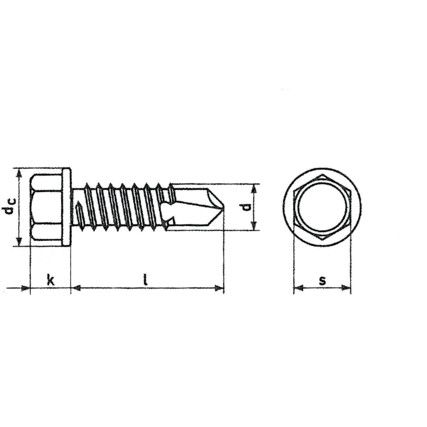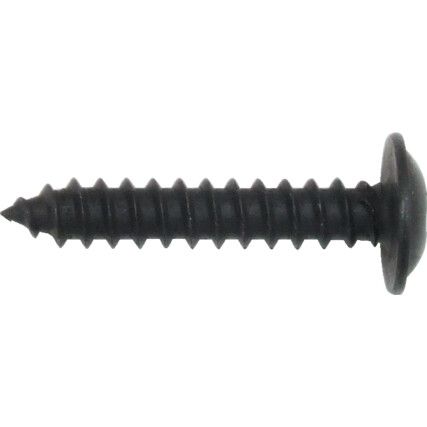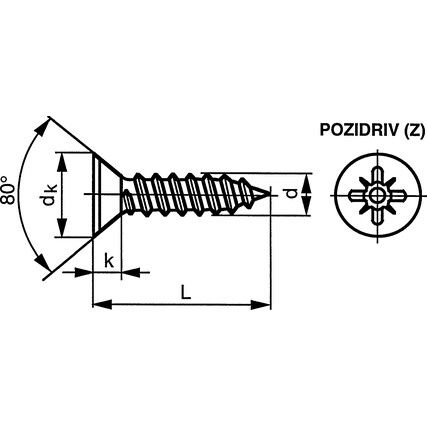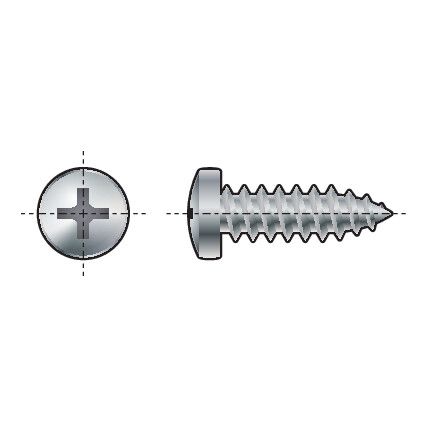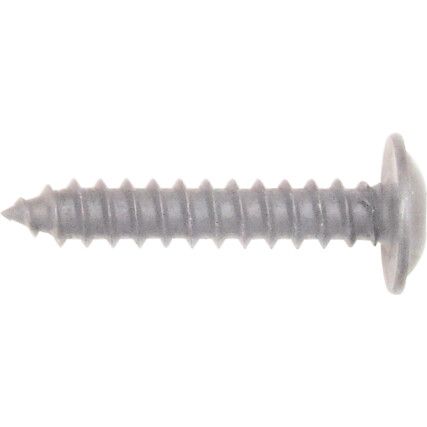Self Tapping Screws
Discover our range of self-tapping screws online now at Cromwell. We stock a comprehensive choice of screw lengths, thread sizes and head shapes to suit every job from reliable brands, like Qualfast® and Matlock®.
What are self-tapping screws?
This type of durable screw is typically manufactured from carbon steel and sometimes stainless steel. They are designed to create their own holes when being driven into a material, which creates a precise and secure fitting.
Why self-tapping screws?
Self-tapping screws are ideal when access is limited to a single side, and a secure fit needs to be achieved. They're also used on items that are regularly deconstructed for maintenance purposes and reassembled using the same threads.
When self-tapping screws?
Like most fasteners, self-tapping screws are available in a wide range of sizes and head shapes to suit the application and the tools used.
Self-tapping screw types
There are two distinct types, which are designed for use with specific materials...
• Thread-forming self-tapping screws - This type is best used in plastic applications and has a flat tip to reshape the material and extrude threads to create a secure fit.
• Thread-cutting self-tapping screws - These have a pointed tip are mainly used in wood and metal applications to cut a path through the material in which the screw will fit.
Considerations when choosing self-tapping screws
• Size - ensure the screw's diameter and length fits with the project you're undertaking.
• Screw tip - compare the density of the material with the length of the screw tip before purchase. To ensure a clean and secure finish, the tip of the screw must be fully inserted into the material before the threading starts.
• Head type - self-tapping screws are available in all head types, so they can be bought for a specific job or according to the screwdriver you most frequently use.
Self-tapping screw jargon buster
When making a purchase its good to know that the items you're buying have been manufactured to high-quality standards. So, to put your mind at rest, we've outlined a quality standard which covers self-tapping screws...
What does BS EN ISO 3506-4:2009 mean?
This six-part quality standard covers the wider mechanical requirements and physical properties of corrosion-resistant stainless steel fasteners. Part 4 outlines the testing and performance requirements for tapping screws made from various grades of stainless steels, including ferritic, austenitic, and martensitic.
This testing methods described in this standard aim to classify stainless steel tapping screws into classes of hardness. This is because the carbon content in stainless steel screws affects their corrosion response when exposed to temperatures varying between 10°C to 35°C.
Let's break it down...
• BS - An abbreviation for the British Standards Institute, the UK governing body for safety and quality standards.
• EN - An abbreviation for European Norm according to the German translation of European Standard, this shows that the standard has been adopted and regulated in Europe.
• ISO - An abbreviation for the International Organization for Standardization, the independent global body for standards monitoring.
• 3506 - This is the legislation number.
• 4 - Part 4 of this 6-part standard refers to tapping screws.
• 2009 - This standard was reviewed and republished in 2009 and superseded the 2003 version.
FAQs
What's the difference between self-drilling and self-tapping screws?
Self-drilling screws are a variant derived from self-tapping screws, but they are not interchangeable. The main difference is a simple one: while self-tapping screws have a pointed or flat tip, they must be started off using a pilot hole or punched hole. While self-drilling screws have a rounded tip and require no pilot hole to get them started in the material, drilling, tapping threads and creating a secure fastening in one action.
Are self-tapping screws reliable?
Self-tapping screws are very common and are widely used in a range of industries for assembly. They're a convenient means of creating a precise thread which, when done correctly, will create a secure and reliable fastening.
